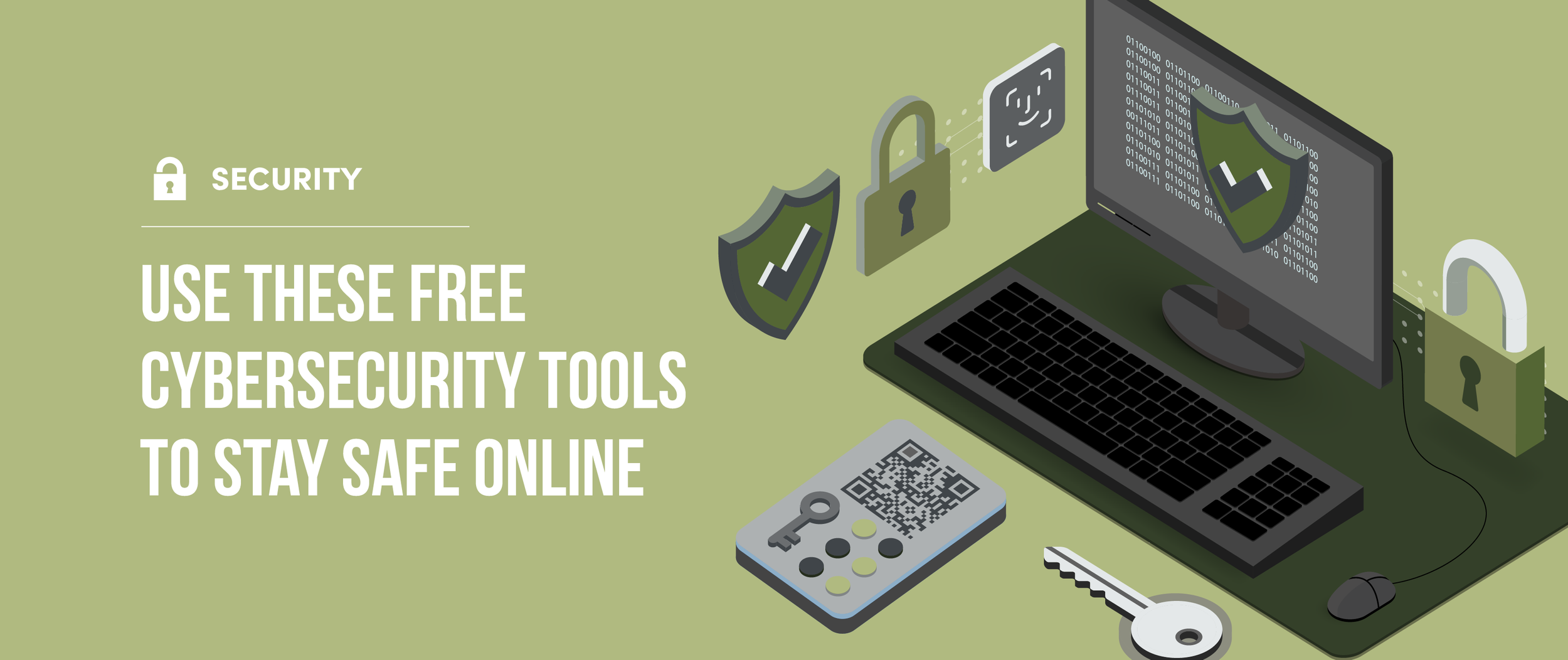Use These Free Cybersecurity Tools to Stay Safe Online
Kalamazoo, MI | August 28, 2025
Whatever your trade, you need the right tools for the job. And cybersecurity is no different.
Without the right cybersecurity tools, it’s impossible to keep your digital life safe. And I know what you’re thinking: that sounds expensive.
But it doesn’t have to be.
Today, I’m sharing insider knowledge on free cybersecurity tools that will help you stay safe online.
Free Multi Factor Authentication
Multi factor authentication (MFA) is a must-have in the modern digital world. Because here’s the truth: if someone really wants your password, they can get it.
Hackers know to use a combination of essential password-cracking strategies such as:
Brute Force. Using computers to guess every possible variation of a password. With brute force, guessing your password is just a matter of time.
Dictionary Attacks. Choosing from a list of common passwords and creating variations on them.
Credential Stuffing. Guessing based on information they know about you from online, such as your mother’s maiden name or children’s birthdays.
Don’t get me wrong—you definitely need a password. You just need something else, too. That’s where MFA comes in.
MFA services are a second way to confirm that you are really the person logging into your account. Usually, that means confirming your identity by receiving a notification on your phone.
I recommend three free MFA services that almost anyone can use:
Duo. Duo is free for small businesses with up to 10 users, and comes with advanced security options for additional users at just $3/month per user. For its ease of use and high-quality security, Duo might be the best in the business.
Google Authenticator. A simple and straightforward authenticator that’s compatible with a wide variety of devices and accounts.
Microsoft Authenticator. Provides more advanced features than Google Authenticator, but works best with Microsoft products.
Did you know you can check how long it would take a hacker to guess your password? Click here to try Security.org’s password security tool. See how your password compares to the most common passwords out there: “123456”, “password”, “qwerty1234, and “letmein”.
The Best Free Password Manager
We’ve all heard this advice before: each account should have a different password that’s unique, long, and complicated.
And its great advice to stay secure. But let’s be honest—how many people can actually pull it off?
Research from last year found that the average person has roughly 250 passwords. Specifically, the average person has passwords for 168 different personal accounts and 87 different business-related accounts.
So, it’s no surprise that hackers keep cracking the code; there’s just no way to remember 250 unique, strong passwords (especially if you change them frequently).
Luckily, password managers are a silver bullet solution that anyone can use. That’s why I recommend using Bitwarden.
What’s Included in Bitwarden Free Password Manager?
Bitwarden is one of the best password managers out there. Here’s how it works:
Bitwarden stores your passwords for you.
When you need to log into an account, Bitwarden will automatically fill in your information.
That’s it.
That’s what’s so beautiful about password managers like Bitwarden—they make life easier, not harder.
On top of that, the free version of Bitwarden also comes with some additional benefits, like:
Unlimited device integration
Unlimited passwords
Username & password generators
Two-factor authentication
Best Free Antivirus for PC
Believe it or not, the days of having to install antivirus for your PC are gone.
At least, if you use Windows.
If you’re using Windows, then you have Microsoft Defender Antivirus already installed. And in fact, 2025 performance reviews Microsoft Defender Antivirus consistently find that it’s even better than most paid antiviruses.
That’s right—you already have one of the best antiviruses installed on your computer (at least, for individual use). That’s because Microsoft Defender Antivirus has:
Fast Performance. Since it’s built-in to Windows, the programming is much leaner, meaning it slows down your computer less than other antiviruses.
Built-In Tools. It comes pre-installed with malware detection, cloud-based protection, a firewall, ransomware protection, and even machine learning.
Fewer False Positives. Microsoft Defender has fewer false positives than the industry average.
Optional Free Antivirus: Malwarebytes
With all that in mind, you don’t have to settle for just Microsoft Defender. There’s another fantastic free option that anyone can use: Malwarebytes.
Microsoft Defender is real-time protection, which means that it’s always working in the background. Malwarebytes, meanwhile, provides advanced on-demand scanning. So, what does that mean?
Essentially, Malwarebytes is what you want to use if you suspect you already have malware on your computer. It’s easy, too. All you have to do is click a button and Malwarebytes will perform a much more thorough scan than you’d get otherwise.
For that reason, you get pretty comprehensive security for free just by combining Malwarebytes with Windows Defender Antivirus.
Here are some other benefits of Malwarebytes’ free version:
Ad blocking
Specialized virus scanner
Specialized Trojan scanner
Spam call blocking (on phone installations)
Most cybersecurity professionals avoid “on-brand” antivirus software like McAfee and Norton. Many of the tools that these companies want you to pay for (such as password managers and VPNs) are already free elsewhere at a higher quality. On top of that, their high number of unnecessary tools (called “bloatware”) can make your computer run slower.
Are Free Cybersecurity Tools Enough?
You’d be surprised how well you can protect yourself with free cybersecurity tools. But unfortunately, the same isn’t true for SMBs.
Organizations need much more advanced protection than just free versions of cybersecurity software. To stay safe from ransomware and other cyber threats, businesses need IT personnel in their corner.
But for many SMBs, in-house cybersecurity is too expensive, that’s why they rely on managed service providers like us.
Anyone interested in cybersecurity for their organization should click here to contact our team at Omega—we’re always happy to answer your questions.


